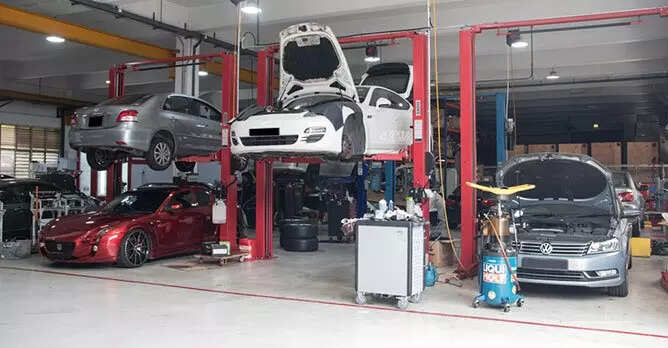
Mumbai:
Fewer cars on the road during the Covid-19 pandemic meant not only fewer accidents, as most people worked from home, but also reduced revenue for body shops and a drop in insurance claims.Industry executives said revenue halved for body shops compared to the pre-Covid time. This happened as the average distance covered by a vehicle per month reduced 30-40%, they said. Studies showed that a positive fallout was that the number of deaths in road accidents fell to 320 a day from 428 before the outbreak of Covid-19.
“In the last 18 months body shop revenue stream has taken a major hit, down by 50%. While it’s seeing some pickup from August, it’s still to reach pre-Covid levels,” said Nikunj Sanghi, a leading Mahindra & Mahindra dealer in Alwar.
The biggest impact was on the workshop revenue of dealerships, where 70% of the service revenue comes from the body shop, according to the executives. As a result, very few workshops retained the entire staff – many were furloughed. “The first quarter of this financial year was a washout, owing to the lockdowns imposed in the wake of the second wave of the pandemic. However, business started improving last month, said Arun Malhotra, ex MD Nissan India and auto expert.
“While these are testing times, dealerships are hugely optimistic that they will soon reach pre-Covid levels at the workshops. Still, very few major accident vehicles are coming. It’s more for minor repairs. If it’s a total loss accident, then the repair cost is almost 50% of the value of the car,” said Subhash Gehlot, a Rajasthan-based Maruti Suzuki dealer who has 36 workshops across the state.
He said his workshops used to get about 1,000 vehicles a month for repair at the body shop before the pandemic and the average repair cost was about Rs 70,000.
Gurdeep Batra, a Patiala-based Hyundai dealer said body shop revenue, the backbone of any dealership, has yet to recover after plunging 75% in his case. He said his workshop would get about 200 vehicles a month at the body shop before the pandemic, with repair jobs costing about Rs 35,000 on average.
Dealers said while rear-end collisions reduced 40-50% during the pandemic, vehicles getting hit while parked accounted for a major part of the body shop.
Insurance claims fell a whopping 60% year-on-year in April-June 2021, according to TA Ramalingam, chief technical officer, Bajaj Allianz General Insurance. In the first quarter of the current financial year, claims were down 20% compared to the pre-Covid time, he said.
Bajaj Allianz General Insurance is one of the leading general insurers in India and has a sizable motor insurance portfolio across the country.
“We witnessed a significant drop in claim registrations during the national lockdown last year. However, during May 2021, when various states had imposed partial lockdown, we witnessed a 50% drop in motor claims,” said Ramalingam.
Abhijit Chatterjee, executive director (claims), IFFCO Tokio General Insurance Company, shared a similar view, saying that during the first lockdown there was a sizable drop in claims owing to reduced traffic mishaps as people were not venturing out. “Once the restrictions were relaxed, there was a spurt in the number of claims due to the backlog and deferring of the repair works at the garages and workshops,” he said.
The Insurance Regulatory and Development Authority (IRDAI) has taken the drop in claims into account and decided not to specify new third party (TP) rates for both 2020-21 and 2021-22. Usually, in April every year, the regulator hikes the motor third party rates to adjust for inflation and increase in prices of motor spare parts.
“One of the major reasons the IRDAI has chosen not to hike the rates is to prevent a price rise in purchasing new vehicles. The regulator is of the view that since the claims outgo for insurers in the way of accident damage are low, they can incur any short-term prices otherwise,” an official in the know said on condition of anonymity.
Industry executives, however, said even idle vehicles can develop several problems such as battery discharge and engine failure due to non-lubrication of engine oils.
“The IRDAI regulates third party rates. It has not changed the rates in the last two years. The recent court judgements announcing higher compensation has impacted the claims outgo for insurers,” said Chatterjee of IFFCO Tokio General Insurance. “It has adversely affected the motor TP portfolio for many players. Several players have voiced their concerns about the TP premium being inadequate to cover the paid claim amounts.”
Dealers are proactively following up with customers to encourage them to ensure regular service and maintenance of cars, trying to improve the turnaround time of service to body shop conversion and to increase accessories sale. With offices opening up, though, it might not be too long before repairers have their hands full at the body shops once again.
Also read:















